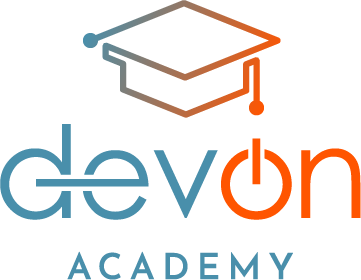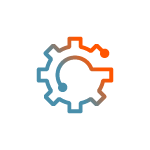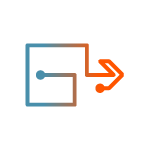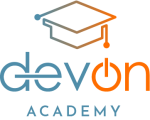Become an
Quality/Test Engineer
The Learning Journey for our Quality/Test Engineer role helps you to gain a deep understanding of quality measures and how to adapt in a Sequential (like waterfall), High-performance delivery (like scrum and DevOps), or Hybrid development environment (like SAFe™)
-
Learn how to create awareness and instil a Quality and Testing mindset throughout the entire organization.
-
Learn how to get a grip on Quality by measuring Testing and Q&A activities in a DevOps context.
Be a T-Shaped Quality/Test Engineer! But what is it?
Professionals in a DevOps Organization must have a balance of soft, process, functional and relevant technical skills. When transforming to DevOps, collaboration, cooperation and acceleration at its core. In cross-functional teams, with a focus on continuous delivery and adding value, we distinguish 5 principle roles, for each of which we have created a learning journey.
A T-Shaped Quality/Test Engineer Looks like
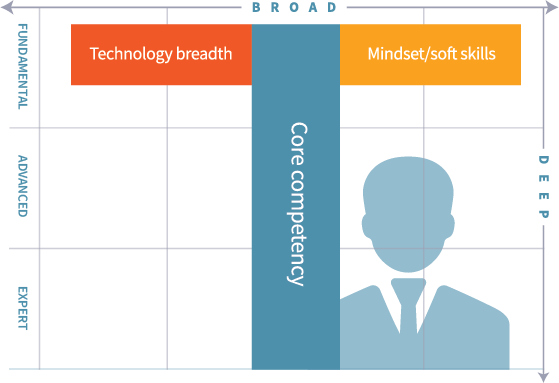
- Programming Languages
- SQL
- Continuous Integration
- DevOps Tools
- Version control
- Branching strategy
- Understanding Technical debt
- Testing techniques
- Agile and Lean mindset
- Clear and transparent communication
- Product and Value-oriented
- Systems thinking
- Innovation in process and practices
- Stepping outside comfortable zone
- Focus on customers needs
- Continuous improvement
- Tracking and reporting
- Inquisitive and collaborative
- Requirement analysis
- Test Planning
- Test Data Preparation
- Test Automation
- API Testing
- Black box testing techniques
- Unit testing
- Responsive/Browser Testing
- Exploratory testing
- Usability testing
- Grey box testing
- Risk/Impact based Testing
- Automation Framework Design
- API Automation
- Test and Quality Management
- Mocking/Proxying APIs
- Debugging
- Strategizing Quality end to end
- Whitebox testing
- Performance Testing
- Security Testing

Quality/Test Engineer Assessment
DevOps in any organization is practiced differently, this is the same for these journeys. The organization may expect different skills from people even though they appear to have a similar role. To truly understand the need of you and your organization, please feel free to get in touch and we will grab a cup of virtual coffee to personalize the journey for you.
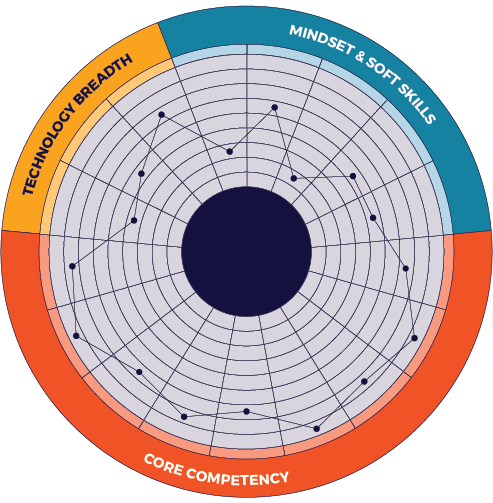
The Journey to become a Quality/Test Engineer
Understand
Expand
Accelerate
Our Quality/Test Trainer
DevOps and CI/CD consultant
Kevin Boots
Kevin Boots is a DevOps and CI/CD consultant with DevOps leadership experience. Coming from an Operations background, he soon after got welcomed to the world of development and high-performance software delivery, climbing the ranks to become an energetic tech/teamlead.
Discover other Learning Journeys
DevOn Academy offers a wide array of trainings targeted specifically to different DevOps roles.
The DevOps Leader is responsible for both process and people. They must promote the benefits of DevOps by identifying and quantifying the business benefits. Moreover, they remove the fear of failure and build a learning culture where it is safe to fail, to fail fast and to learn and improve.
The automation expert, often called architect finds the proper tools and implements processes which can automate manual tasks. They have the core automation role across DevOps tools and Cloud platforms. They are able to advocate lean thinking across processes.
The QAs, or XAs are responsible for User Experience and that the product has the features defines in the original specifications. However, they do not only test functionality but now also include experience testing.
.
Developers and testers are at the heart of every successful DevOps organization. Of course they turn requirements into code and test it to see if it meets business requirements but they are also responsible for unit testing, deployment and continuous monitoring. This makes it a critical role with many aspects which may need a personalized journey.
The DevSecOps Engineer assures the security and integrity of an application in a DevOps organization. They work side by side developers and ensure built-in security. The DevSecOps Learning Journey helps you understand the fundamentals of designing secure systems and incorporating ‘security’ at a higher level or building ‘security in’ so to speak.
A Site Reliability Engineer (SRE) is one of the roles in a DevOps organization who has an extremely broad reach. This role incorporates aspects of software engineering and it applies those to problems in both infrastructure and operations. Because of their knowledge and influence, they create ultra scalable and highly reliable distributed software systems.
Product Owners ensure fast and efficient delivery and as the voice of the customer. They’re responsible for prioritization, stakeholder management and creating the ultimate product. Within DevOps, POs need to understand the technical landscape and possibilities better than they were used to. Foundational knowledge of Security, CD and Cloud is no longer optional.
Let us help you gain insight and evaluate which skills you need to develop in order to become an expert in your field. All training courses focus on aspects within the DevOps spectrum, with a focus on role-based trainings within the different subjects. This can be a combination of regular training courses, mini-workshops, e-learning, and hackathons.

